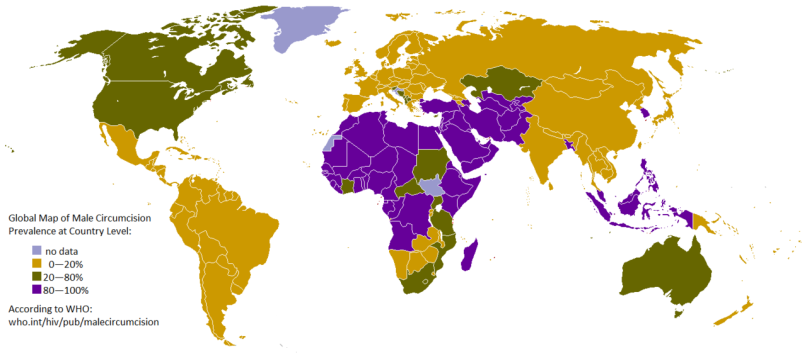I wrote about vaginal laxity and hymen tests on Monday. Seems only fair that I end the week with a debate on male circumcision.
On Tuesday the CDC issued draft recommendations encouraging doctors to advise men and parents of boys that circumcision can reduce the risk that males will contract HIV and other STIs from women.
If circumcision can reduce some health risks for men who engage in unprotected intercourse with women, give those men that information and let them do with it what they will. Fine.
But what presumptions are doctors making when they give that information to parents of male minors in a country that already routinely circumcises its boys for the sake of culture, tradition and religion rather than medicine?
There’s no definitive data showing that circumcision protects men who have sex with men from infection. Parents might assume that their newborn boys will have sex with women, but many of them will be wrong, resulting in medically arbitrary procedures that are not without risks.
This is an important point, but it’s slightly beside the point. Most boys in America are already being circumcised as infants simply because their fathers and grandfathers were circumcised. It’s considered “normal.”
Also because the inventor of Corn Flakes wanted to stop masturbation…
Parents in the U.S. usually consent to their sons’ circumcisions while millions of boys never have a say in the irrevocable procedure.
Male circumcision is rare in Europe, South America and most of Asia, but it’s routine in much of Africa, the Middle East, Australia, Canada and the U.S.
Jewish parents usually circumcise their sons in infancy and Muslims do so by early childhood. Xhosa males in South Africa, where I’m currently based, are usually circumcised in their teens.
Last year the Council of Europe adopted a resolution stating their concern over violations of “the physical integrity of children,” which include “female genital mutilation and the circumcision of young boys for religious reasons.”
The risk of complications resulting from circumcision have been shown to increase with age, but so does the ability of an individual to actually consent.
I think that’s enough background, readers.
Now you tell me — Should male circumcision require personal consent? If so, at what age? If not, why not?
Have at it in the comments section below.






